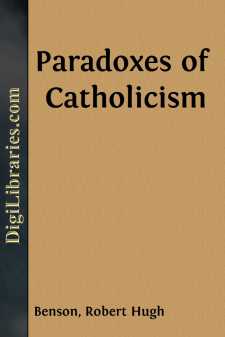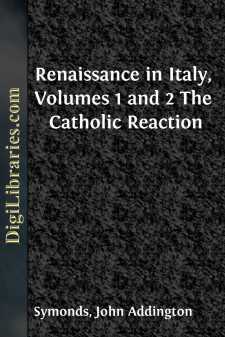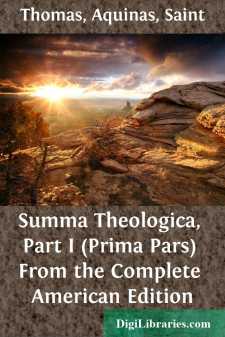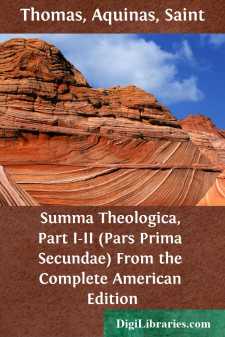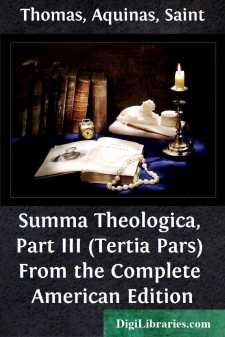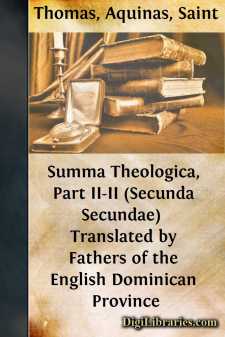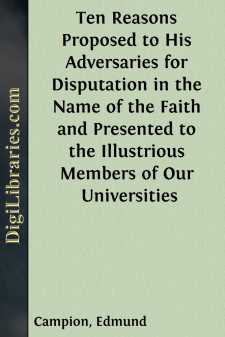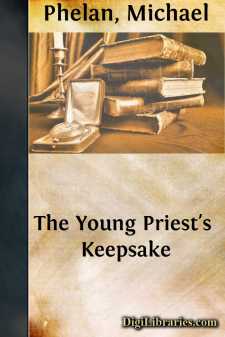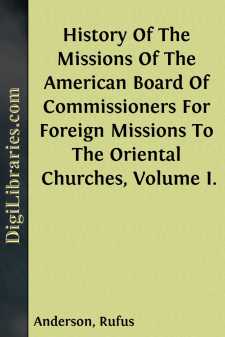Religion
- Agnosticism 2
- Antiquities & Archaeology 21
- Atheism 12
- Biblical Criticism & Interpretation 15
- Biblical Meditations 3
- Biblical Reference 1
- Biblical Studies 11
- Buddhism 8
- Christian Church
- Christian Education 5
- Christian Life 26
- Christianity 60
- Cults 2
- Devotional 6
- Eastern 2
- Education 4
- Eschatology 1
- Ethics 3
- General 60
- Gnosticism 1
- Hinduism 15
- History 28
- Holidays 10
- Inspirational 1
- Islam 8
- Judaism 3
- Leadership 1
- Meditations 3
- Monasticism 1
- Mysticism 11
- Philosophy 4
- Prayer 26
- Prayerbooks 5
- Religion & Science 12
- Sermons 54
- Spirituality 53
- Theism 2
- Theology 17
- Theosophy 15
Christian Church Books
Sort by:
INTRODUCTORY (i) JESUS CHRIST, GOD AND MAN I and My Father are one.—JOHN X. 30. My Father is greater than I.—JOHN XIV. 20. The mysteries of the Church, a materialistic scientist once announced to an astonished world, are child's play compared with the mysteries of nature.[1] He was completely wrong, of course, yet there was every excuse for his mistake. For, as he himself tells us in effect,...
more...
CHAPTER I THE SPANISH HEGEMONY Italy in the Renaissance—The Five Great Powers—The Kingdom of Naples—The Papacy—The Duchy of Milan—Venice—The Florentine Republic—Wars of Invasion closed by the Sack of Rome in 1527—Concordat between Clement VII. and Charles V.—Treaty of Barcelona and Paix des Dames—Charles lands at Genoa—His Journey to Bologna—Entrance into Bologna and Reception...
more...
by:
Aquinas Thomas
PROLOGUE Because the Master of Catholic Truth ought not only to teach the proficient, but also to instruct beginners (according to the Apostle: As Unto Little Ones in Christ, I Gave You Milk to Drink, Not Meat— 1 Cor. iii. 1, 2)—we purpose in this book to treat of whatever belongs to the Christian Religion, in such a way as may tend to the instruction of beginners. We have considered that students...
more...
by:
Aquinas Thomas
FIRST ARTICLE [I-II, Q. 1, Art. 1] Whether It Belongs to Man to Act for an End? Objection 1: It would seem that it does not belong to man to act for an end. For a cause is naturally first. But an end, in its very name, implies something that is last. Therefore an end is not a cause. But that for which a man acts, is the cause of his action; since this preposition "for" indicates a relation of...
more...
by:
Aquinas Thomas
In a few places, where obvious errors appeared in the Benziger Brothers edition, I have corrected them by reference to a Latin text of the Summa. These corrections are indicated by English text in brackets. For example, in Part I, Question 45, Article 2, the first sentence in the Benziger Brothers edition begins: "Not only is it impossible that anything should be created by God…." By...
more...
by:
Aquinas Thomas
TREATISE ON THE THEOLOGICAL VIRTUES (QQ. 1-46) _______________________ QUESTION 1 OF FAITH (In Ten Articles) Having to treat now of the theological virtues, we shall begin withFaith, secondly we shall speak of Hope, and thirdly, of Charity. The treatise on Faith will be fourfold: (1) Of faith itself; (2) Of the corresponding gifts, knowledge and understanding; (3) Of the opposite vices; (4) Of the...
more...
Chapter I. Who I Am, What I Am, and Why I Am What I Am. My parents were Catholics, and for this reason I suppose, is why I became a Catholic Priest. I was born in Germany, in 1847, thus you see I am now almost what the world would call an old man—56 years old. A few years ago, I was of the opinion that my life had been well spent, but to-day I firmly believe that the major part of my life has been...
more...
by:
Edmund Campion
1. THE SIGNIFICANCE OF THE Decem Rationes. The chief point to remember is that the Decem Rationes was the last and most deliberate free utterance of Campion's ever-memorable mission. During the few months that mission lasted he succeeded in staying the full tide of victorious Protestantism, which had hitherto been irresistible. The ancient Church had gone down before the new religion, at...
more...
by:
Michael Phelan
CHAPTER FIRST CULTURE: ITS NECESSITY TO A YOUNG PRIEST If you question any priest of experience and observation who has lived on the foreign mission, and ask him what constitutes the greatest drawbacks, what seriously impedes the efficiency of our young priests abroad, without hesitation he will answer—First, want of social culture; and, secondly, a defective English education. To the first of these...
more...
by:
Rufus Anderson
PREFACE. Missions to the Oriental Churches occupy a large space in the forty-nine volumes of the Missionary Herald, and in as many Annual Reports of the Board; and in view of the multitude of facts, from which selections must be made to do justice to the several missions, it will readily be seen, that their history cannot be compressed into a single volume. The Missions may be regarded as seven or...
more...


